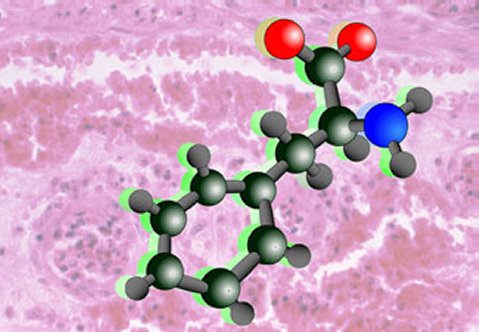Switching on cancer killer gene

Scottish scientists have discovered how to control a major anti-tumour gene that could lead to more effective chemotherapy.
According to a report in the Cancer Cell Journal, research conducted by the Universities of St Andrews and Dundee may eventually lead to the development of new cancer drugs.
The gene, called p53 and known as “the guardian of the genome”, is damaged or switched off in most cancers. But the resrchers found that they could reboot it using two new biological compounds called “tenovins”.
In a laboratory study, the academics found that these compounds could kick-start p53 by turning off enzymes called sirtuins. Sirtuins act like genetic switches and keep p53 under control, ensuring that the cells stay alive.
Dr Nick Westwood from the School of Chemistry at the University of St Andrews said, “This is a great example of what can be done by researchers from different disciplines collaborating. This programme has successfully combined skills in cell and cancer biology, biochemistry, genetics and chemistry to deliver compounds of genuine therapeutic interest.”
He explained, “The approach that we used to identify the tenovins differs from the main approach used today in many pharmaceutical and biotech companies. The compounds were initially selected for study because they induced the required effect on whole cells as opposed to the use of purified proteins.
“The research team then figured out the details of how the observed effect occurred. Whilst other examples of our experimental approach are known, it is quite an achievement to get this far. Our choice of approach has been justified as we have shown that both of the tenovins work in a cancer model.”
Given that faults in p53 function contribute to many types of cancer, the discovery of less toxic chemicals that can restore or amplify its power has enormous potential.
Dr Sonia Lain from Dundee University and joint author of the study said, “Our findings indicate that improved tenovin derivatives may have the potential to stop tumours and that their ability to switch on p53 contributes to this.
“We have found that tenovins work by inhibiting sirtuins. This is important, as it may facilitate further optimisation of the compounds.”
The research was jointly funded by Cancer Research UK, the University of Dundee and Tenovus Scotland, a charity which supports medical research in Scottish Universities.
ENDS
NOTE TO EDITORS:
Dr Nick Westwood is available for interview on 01334 463816.
Dr Sonia Lain is available for interview on 01382 496426.
NOTE TO PICTURE EDITORS:
IMAGES ARE AVAILABLE FROM THE PRESS OFFICE – CONTACTS BELOW.
Issued by the Press Office, University of St Andrews
Contact Fiona Armstrong, Press Officer on 01334 462530 / 462529, email [email protected]
Ref: CancerJournal 080508
View the latest University press releases at www.st-andrews.ac.uk
Category Research